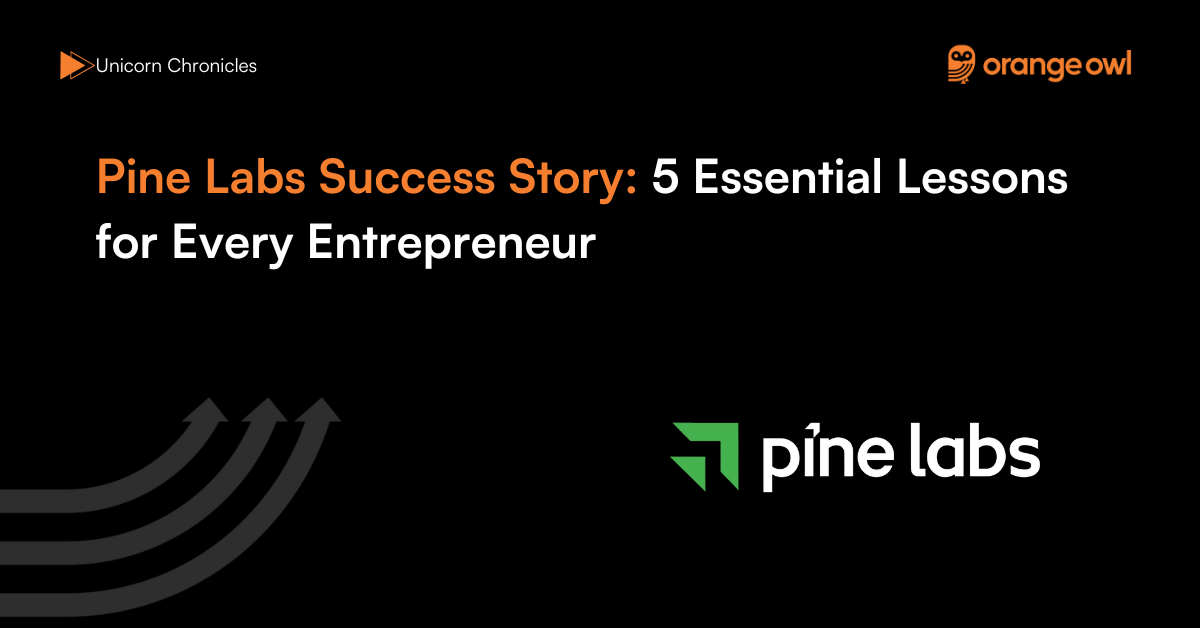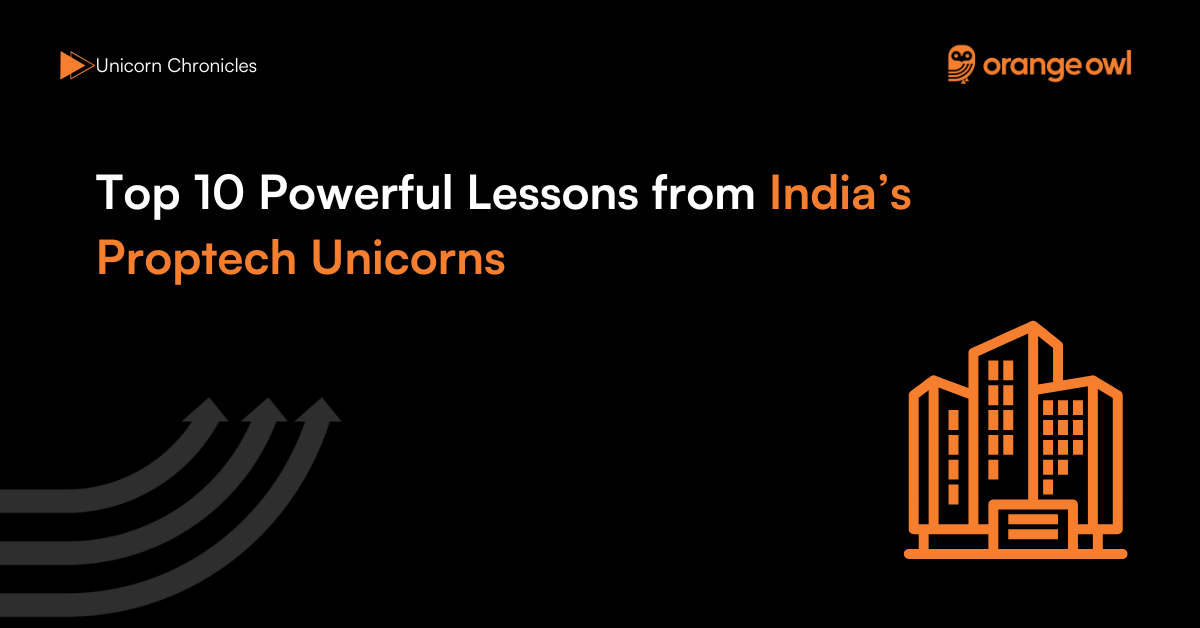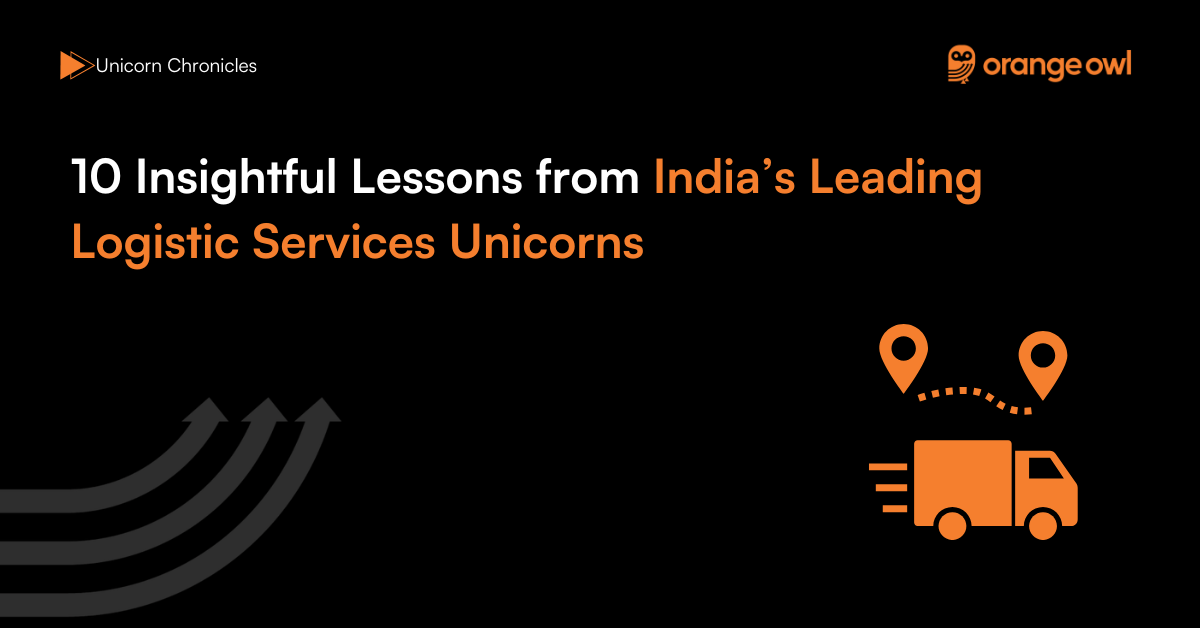Pine Labs Success Story: 5 Essential Lessons for Every Entrepreneur
Vivek Goel
May 14, 2025

Table of Contents
Introduction
Pine Labs Founded in 1998 by Lokvir Kapoor, Rajul Garg, and Tarun Upadhyay, began its journey not in fintech, but in the niche field of petroleum automation. Initially focused on creating solutions for oil companies to manage their retail automation systems, the company quickly realized that the true disruption lay beyond fuel stations—in the bustling and diverse world of Indian retail. Sensing a major gap in how payments and retail transactions were handled, Pine Labs strategically pivoted in the mid-2000s to become a point-of-sale (PoS) technology provider.
This pivotal shift marked the beginning of Pine Labs’ transformation into a full-fledged fintech powerhouse. By leveraging technology to modernize in-store payments, Pine Labs started offering comprehensive solutions that catered to both large retailers and small businesses alike. Over time, the company expanded its offerings to include payment acceptance, buy-now-pay-later (BNPL) options, gift cards, loyalty programs, and merchant analytics. As of 2023, Pine Labs serves over 150,000 merchants across India, Southeast Asia, and the Middle East, helping them streamline operations and enhance customer experiences. With a valuation exceeding $5 billion and backing from global investors like Sequoia Capital, Temasek, and Mastercard, Pine Labs is a remarkable example of how a legacy business can evolve through foresight and innovation.
Origin Story
The story of Pine Labs is one of vision, evolution, and resilience. What began as a focused venture in petroleum retail automation soon transformed into a broader mission to simplify payments for the vast Indian retail ecosystem. By the early 2000s, the founders—Lokvir Kapoor, Rajul Garg, and Tarun Upadhyay—recognized that the real friction in retail wasn’t limited to automation but extended to payments and transaction management.
Sensing the growing penetration of cards in India, they pivoted and launched Pine Labs’ first Point-of-Sale (PoS) device in 2003. This marked a turning point. The new PoS solution enabled merchants to accept debit and credit card payments, offering a digital alternative to the otherwise cash-heavy system.
“Our idea was simple: remove friction from merchant payments,” Lokvir Kapoor once shared. “India is a complex market, and we knew that if we built for this market, we could build for the world.”
The next big leap came in 2020 with the appointment of Amrish Rau as CEO, a fintech veteran who had earlier co-founded Citrus Pay, one of India’s earliest digital payment companies. With Rau at the helm, Pine Labs doubled down on innovation and regional expansion.
“We were already trusted by thousands of merchants,” Rau said in an interview. “My goal was to evolve Pine Labs into a platform that empowers businesses with not just payment tech but also credit, loyalty, and insights.”
This leadership shift not only strengthened the company’s technological focus but also accelerated its vision of becoming a global merchant commerce platform originating from India.
Business Landscape and Challenges
Pine Labs navigated a competitive and ever-evolving fintech landscape where innovation was not just a strategy—it was a necessity. The company faced formidable competition from both traditional banks offering PoS services and emerging digital payment platforms like Paytm and Razorpay. Additionally, the Indian market posed inherent challenges—fragmented infrastructure, varied customer preferences across urban and rural regions, and a dynamic regulatory environment.
“The Indian retail environment is anything but uniform,” said Rajul Garg in an early interview. “Our biggest challenge was building products flexible enough to work in a Kirana store and a multinational retail chain.”
To differentiate itself, Pine Labs focused on building smart, versatile PoS solutions. These devices didn’t just process card payments—they supported UPI, EMIs, QR codes, gift cards, and even BNPL options. Moreover, Pine Labs offered value-added services like customer analytics, loyalty integrations, and inventory tracking, turning their PoS terminals into comprehensive business tools.
This multi-functionality proved essential in a market where merchants demand more than just transaction capability—they want actionable insights and customer engagement tools.
“We weren’t building a payment device,” Amrish Rau emphasized. “We were building an ecosystem—something that truly powers merchant growth.”
This proactive and adaptable approach helped Pine Labs not only survive but thrive amid intensifying competition and growing expectations, laying the foundation for its expansion into international markets like Southeast Asia and the Middle East.
Growth Strategies
Pine Labs’ impressive trajectory in the fintech ecosystem stems from its sharp focus on innovation, scalability, and merchant empowerment. The company adopted a multi-pronged growth strategy that allowed it to stay ahead of the curve in a dynamic industry.
One of the cornerstones of its growth was offering diversified payment solutions. By supporting over 100+ payment methods, including debit and credit cards, UPI, mobile wallets, QR codes, EMIs, and even Buy Now Pay Later (BNPL) options, Pine Labs enabled merchants to serve the varied preferences of Indian consumers. This inclusivity made it easier for both small retailers and large chains to adopt Pine Labs’ PoS systems with confidence.
Beyond payments, Pine Labs built a competitive edge through value-added services. Their PoS devices weren’t just transaction machines—they were complete business enablement tools. Features like real-time customer analytics, inventory insights, EMI financing, loyalty programs, and cashback offers helped merchants not just accept payments but also attract and retain customers. This made Pine Labs indispensable to retailers looking to grow.
The company also pursued strategic partnerships with leading banks and NBFCs like HDFC Bank, ICICI Bank, and Kotak Mahindra, allowing Pine Labs to offer integrated credit solutions and increase merchant acquisition. These collaborations helped them tap into financial ecosystems while sharing regulatory and operational responsibilities.
Pine Labs’ international ambitions became clear with acquisitions such as Fave, a consumer fintech platform in Southeast Asia. This move signaled the company’s evolution from a domestic PoS player to a pan-Asia merchant commerce platform, aimed at replicating its India success across emerging markets.
Marketing Strategy
While many fintech firms invest heavily in product-focused or transactional marketing, Pine Labs took a human-centered approach. Its marketing strategy revolved around building long-term trust with merchants and highlighting the transformational impact of its services. Rather than showcasing technical specifications, the company leaned into storytelling—amplifying merchant voices and celebrating small business wins.
Campaigns like #AsliHero (translated as “The Real Hero”) spotlighted everyday merchants who demonstrated resilience and innovation, especially during the COVID-19 pandemic. These stories connected deeply with their target audience, portraying Pine Labs not just as a service provider, but as a partner in growth and recovery.
Customer testimonials and use-case videos demonstrated the tangible benefits of Pine Labs’ products—from increasing footfall with loyalty programs to improving cash flow through EMIs and BNPL solutions. The brand’s messaging consistently emphasized ease of use, reliability, and merchant empowerment, helping it stand out in a crowded fintech marketplace.
By aligning their marketing with real-world impact and community building, Pine Labs successfully created a positive emotional association with its brand, reinforcing loyalty among merchants and fostering advocacy.
5 Essential Lessons for Every Entrepreneur
1. Embrace Strategic Pivots
Pine Labs’ transformation from a niche petroleum automation provider to a leading digital payments and fintech company is a masterclass in business adaptability. What started as a focused tech solution for fuel retailers gradually evolved into a full-scale point-of-sale (PoS) and consumer payments platform. This pivot wasn’t accidental—it came from deeply observing market needs and acting on emerging opportunities.
For entrepreneurs, this underscores the importance of remaining agile and being willing to reimagine the core business when necessary. Markets change, technologies evolve, and customer expectations shift; success lies in recognizing the right moment to reinvent.
“We realized that our platform had the potential to serve the broader retail sector, not just fuel pumps,” said founder Lokvir Kapoor in an interview. “That moment of clarity changed everything for Pine Labs.”
2. Prioritize Customer-Centric Innovation
Pine Labs’ rise was not just about offering more payment options—it was about understanding merchants’ pain points and designing tools that made their lives easier. By engaging directly with retailers, the company identified gaps like the need for instant EMIs, cashback integrations, loyalty features, and consolidated analytics.
These weren’t afterthoughts—they were central to the product strategy. This laser focus on merchant experience gave Pine Labs an edge over larger players who were slower to respond to on-the-ground feedback. Entrepreneurs should remember: the best innovations don’t always come from boardrooms—they come from listening to users.
CEO Amrish Rau noted, “We never saw merchants as just customers. We treated them like partners in innovation—and that made all the difference.”

3. Leverage Partnerships for Growth
Pine Labs didn’t scale alone. Strategic alliances with banks, NBFCs, digital wallets, and even major retail chains gave them access to financial products, customer bases, and robust infrastructure.
These collaborations powered offerings like real-time credit at checkout, integrated loyalty programs, and smoother payment reconciliations. For entrepreneurs, partnerships can often be the fastest route to scale—especially in regulated or trust-driven industries like fintech. But the key is mutual value creation: partners must gain as much as they give.
“Fintech is not a solo game,” said Rau. “Our ability to create win-win partnerships enabled us to move faster and deliver better.”
4. Expand Thoughtfully into New Markets
In 2021, Pine Labs made a bold move by acquiring Fave, a fintech platform with a strong presence in Southeast Asia. This was not just an expansion—it was a calculated step toward becoming a global fintech brand. The company studied regional synergies, understood cultural nuances, and chose markets with digital-forward consumers and growing merchant bases.
For entrepreneurs looking to go global, this offers a valuable lesson: success abroad isn’t about replication—it’s about adaptation. Each market requires tailored strategies, local partnerships, and a nuanced approach to customer engagement.
“We believe Southeast Asia is at a similar fintech adoption curve as India was a few years ago,” said Rau. “We saw ourselves adding real value there, not just chasing growth.”
5. Build a Trustworthy Brand Narrative
In a space as sensitive as digital payments, trust is non-negotiable. Pine Labs built its reputation not just through technology but through storytelling. Campaigns like #AsliHero highlighted how everyday merchants thrived despite adversity, positioning Pine Labs as an enabler of success.
Customer testimonials, merchant case studies, and thought leadership by founders helped the brand resonate across segments—from small kirana stores to premium retail chains. Entrepreneurs should understand that brand isn’t just a logo—it’s the story you tell and the emotion you evoke. Trust, once earned, becomes a powerful growth driver.
Conclusion: Pine Labs’ Blueprint for Purpose-Driven Growth
Pine Labs’ evolution is a powerful example of how a company can reinvent itself by staying tuned to the ground realities of its market. From petroleum automation to becoming a global fintech powerhouse, every chapter of their journey was marked by thoughtful pivots, relentless customer focus, and bold, collaborative thinking.
In an age where digital disruption is constant, Pine Labs proves that adaptability, empathy, and clarity of purpose are the true cornerstones of long-term success. For today’s entrepreneurs, the lessons are timeless:
- Pivot when the opportunity is right.
- Solve real problems for real people.
- Partner smartly to scale efficiently.
- Expand with intention, not haste.
- And most importantly, build a brand rooted in trust and value.
As Pine Labs continues to shape the future of commerce, it leaves behind a legacy—and a roadmap—for the next generation of entrepreneurs aiming to create something meaningful, scalable, and truly impactful.


